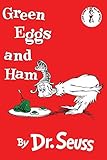Updating of a “Learn to Learn” Blog Post for June 26 2014
….taking this blog in a new Meta direction that will focus on 2 ideas: (l) Developing a lesson planning format that focusing on helping kids become metacognitive learners (P.O.R.T.A.L.S.); (2)Developing a framework for helping kids help other kids to learn (Kids as Executive Learners©). With these 2 ideas as a base, I’ll develop a series of lessons using the P.O.R.T.A.L.S. lesson planning tool.
I begin here with the first of a two part blog: Part A. PORTALS Lesson Plan. This lesson plan format reflects a “diagnostic teaching” approach to teaching/learning: that is, an approach that tries to understand and plan for factors that either facilitate learning or account for and then address breakdowns in learning for individual students. Part B. Kids as Executive Leaners.© This will be the introduction to the idea of ”Kids as Executive Learners.” With these 2 parts as a base, subsequent blog posts will provide examples of PORTALS planning focusing primarily on language, a literacy, and higher order thinking skills.
PORTALS Lesson Plan: Introducing the Idea of Lesson Planning and Meta Lesson Planning
Purpose (Your goal; the outcome you seek)
Operations (How you will achieve the goal through Processing and Transforming Information and ideas)
Remembering (Attending to and holding information in Working Memory and storing and retrieving it from Long Term Memory)
Team Work (Solving problems and achieving goals with help from others)
Action (Outcomes that Demonstrate and Disseminate your work
Laying a Foundation (All problems are about something—the content—the information and ideas. The facts, concepts, and ideas you will need.
Self-Management (You are in charge! ) What will you do to make this a successful experience? After the fact: How did the lesson turn out? What did you learn about yourself as a learner?
This Lesson Plan format is based on five beliefs.
(1) Students are capable of learning to direct their own learning.
(2) Learning is situated in particular contexts and is most engaging when motivated by authentic goals and outcomes.
(3) Learning is most successful when it addresses both the strengths and challenges of individual learners.
(4) Students learn about something (concept/idea/skill/process) and use a variety of cognitive and affective processes to accomplish that learning.
(5) Building a learning community in the classroom/school benefits all learners.









Leave a Reply